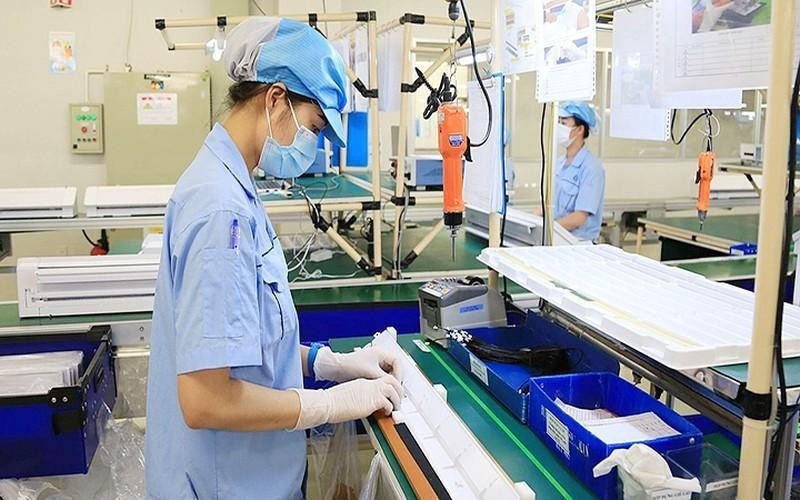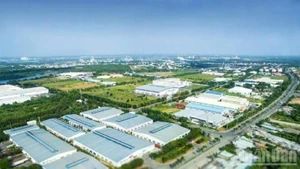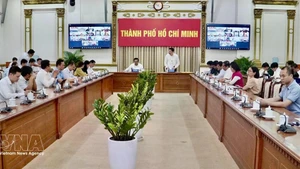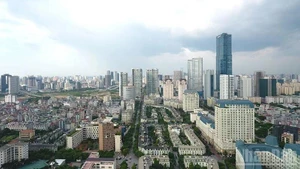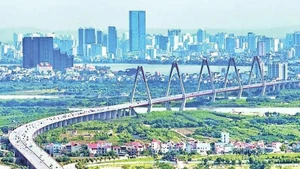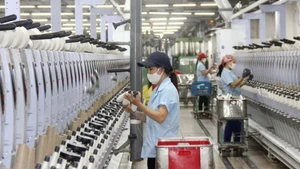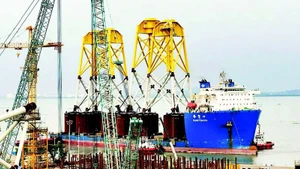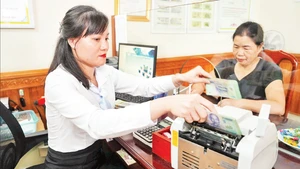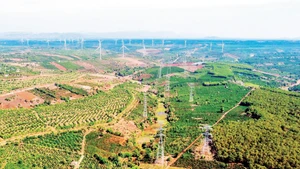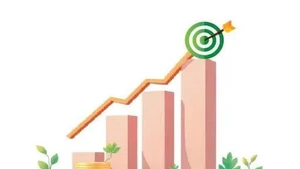The National Assembly and Government have promptly made historic and important decisions, to realise the goal of socio-economic recovery and development.
As a result, Vietnam's economy has grown very impressively, exceeding all forecasts over the past 10 months, creating a solid foundation to return to a trajectory of high growth in the coming years. The nine-month GDP target grew 8.83% over the same period, the highest level since 2011, while the average consumer price index (CPI) increased by 2.73%. By the end of October 2022, the CPI increased by 2.89%, equivalent to the same periods in recent years since 2018.
Amid fluctuations in the world’s inflation and the risk of energy crisis and global food shortage, the Government promptly and proactively managed the prices of electricity, petrol and other essential goods and services managed by the State; maintained energy and food security. Monetary policy has been carried out proactively, to adapt to faster and stronger fluctuations of the international market and manage the exchange rate in line with market movements, thereby ensuring domestic foreign currency demand, continuing to strengthen the confidence of the market and avoiding pressure to shift capital flows out of Vietnam market.
The foreign direct investment (FDI) attraction has recovered positively with a sharp increase of realised capital, contributing to reducing pressure on the international balance of payments while enhancing the new production capacity of the economy.
However, the economic picture is not all roses. In the short term, the room for operating fiscal and monetary policies has been increasingly narrowed. The management and administration of petrol and oil prices have not been conducted according to market principles, affecting domestic supply and retail prices. The shortages of drugs and medical equipment in hospitals have become more serious. Although the growth of both supply and demand factors of the economy reached a high level, this has not offset the decline of the previous year due to the COVID-19 pandemic. The difficult and unstable context of the world economy has made a negative impact on the production and business activities of enterprises, as well as the management and administration of the domestic macro-economy. In addition, the proportion of businesses going bankrupt, and temporarily suspending operations also increased.
Meanwhile, it is time to address the internal problems of the economy that have accumulated for many years, including the slow disbursement of public investment capital, the economic restructuring process, and the new requirements for the task of completing institutions, improving the investment and business environment and enhancing competitiveness. In addition, the deteriorating outlook for global economic growth will significantly affect the recovery momentum of Vietnam's economy.
Notably, difficulties and challenges in the near future are forecasted to be very large, with many uncertain and unpredictable factors and faster, stronger and more comprehensive impacts. In that context, despite being completely optimistic about the prospect of economic recovery, it should not be subjective, especially the factors directly affecting the macroeconomy, inflation and security. The sectors and localities need to implement the solutions proposed in the Socio-Economic Development and Recovery Programme more effectively, unleash the momentum for growth and make the most of the internal resources besides the mobilisation and attraction of foreign investment capital, to take advantage of all opportunities for the country’s development.
